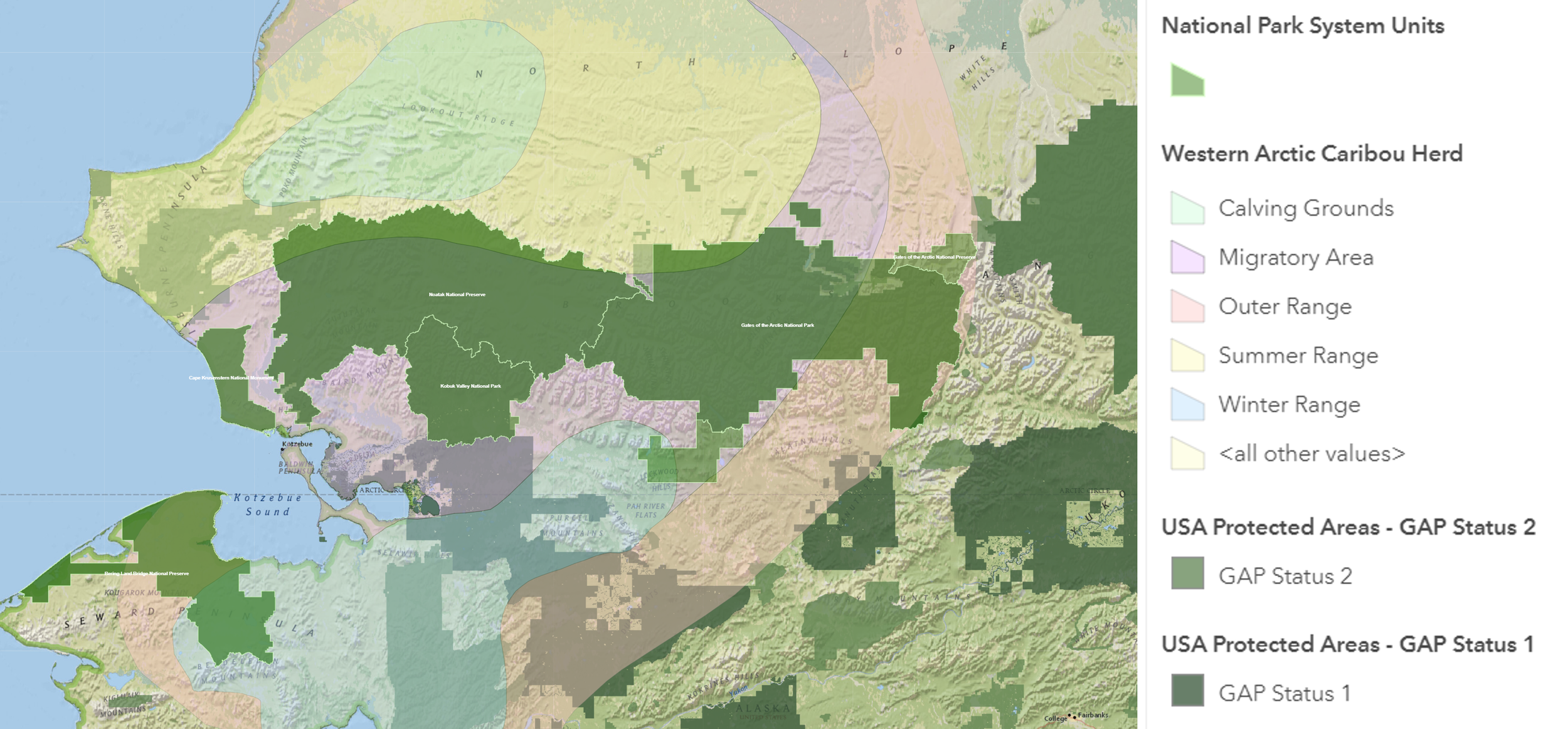The National parks conservation association is proud to offer its inaugural
Conservation Data & Communications Fellowship
This fellowship is exclusively available to graduate students enrolled in Duke University’s Nicholas School of the Environment and will be administered through NPCA’s on-campus conservation partner, the Park Institute of America.
in partnership with
&
Fellowship Summary
We are seeking two student fellows to support NPCA’s role in the global 30x30 Initiative. The fellows will learn NPCA’s approach to data application by developing spatial resources that empower large landscape conservation around U.S. National Parks.
Location - REMOTE with built-in travel opportunity to visit a park landscape
Duration - 12 weeks with flexible May start date; 40 hours per week
Compensation - $6,000 stipend plus travel and accommodations for a brief park landscape visit
NPCA Conservation Science Team
Fellows will work directly with the NPCA Conservation Science team under the supervision of Nik Moy with additional guidance and professional development provided by Amy Tian, Ryan Valdez. Tyler Sammis of the Park Institute of America, and NPCA regional program staff based on the landscape chosen.
Nik Moy
Senior Program Manager
Amy Tian
Geospatial Science Fellow
Ryan Valdez, Ph.D.
Senior Director
Program Goals
National Goal - Conserve 30% of US lands and waters for biodiversity by 2030.
NPCA Conservation Science Goal - Within park landscapes, help protect multi-dimensional conservation values from the most immediate climate-related impacts and land-use changes by 2030.
Fellowship Goal - Jump start this process by working with NPCA Science to build a geospatial resource of future national park landscape priorities and threats. Each student will choose to focus on a single landscape, but work together on national level products and datasets.
Description of Work
Each fellow will work with NPCA’s Conservation Science team, the other fellow, and a representative from the respective NPCA regional staff to collect an up-to-date, relevant, and science-based database of publications, spatial data, and partner contacts that informs the future protection of a park landscape.
Primary Task - Develop a landscape science toolkit for NPCA regional staff that empowers their work in the landscape. This toolkit will be rooted in a research database that informs conservation prioritization.
Landscape topics fellows may be examine includes:
Indigenous land use priorities
Climate resilience
Connectivity and corridor pathways between parks
Carbon/forest resources surrounding parks
Energy resources and threats
Environmental justice values
Wildlife habitat and ESA
Human-dimensions including equal access and heritage resources
Development threats
Conservation/restoration potential
Secondary Task - Report on findings to the NPCA team. Help facilitate the use of this new resource to inform the delineation of the landscape and the prioritized conservation areas within it.
Tertiary Task - Create and pursue a tailored focus depending on career interests of each fellow with some combination of:
Mixed media data storytelling with writing/PowerPoint/StoryMap
Infographics
Scientific illustration
Landscape Indicators – summary statistics created through analysis
Remote sensing
White paper brief for political audiences
Cartographic map
Example Landscape - The National Parks in north-central Alaska are the hub of a greater landscape of protected areas that are central to the life-history of the Western Arctic Caribou Herd.
Description of Study
Concurrent with the execution of work tasks, fellows will receive weekly cohort training on NPCA’s approach to conservation data management. The purpose of this instructional program is to:
Expand fellows’ science communications skillset
Foster cohesion, collaboration, and information sharing among cohort fellows
Ensure consistency of data management practices
Syllabus - Each week’s instruction will cover a distinct conservation science topic including:
Large Landscape Conservation and Consulting Regional Conservation Staff
Sourcing High Quality Data
Building a Database in ArcGIS Online and Metadata
Configuring a Web Application in ArcGIS Online
Landscape Indicators
Science Communication
Science for Policy
Presenting Your Results to Regions
Science Careers
Example Communication Output - Example infographics and storytelling using scientific illustration, photography, cartography, and science writing by Amy Tian, NPCA Geospatial Science Fellow, for NPCA’s internal science newsletter Science News.
Potential Park Landscapes
Park landscape assignment will depend on student’s preference, location, and background as well as current NPCA priorities.
Greater Everglades (FL)
Greater Yellowstone Ecosystem (WY)
North Cascades (WA)
Delaware River (PA)
Georgia Rivers
Alabama Rivers
Delaware River
Maine’s 100-mile Wilderness
Calumet Landscape (IL, IN)
Grand Canyon Landscape
Western Arctic Caribou Herd Landscape (AK)
The Lands Between (UT)
Dinosaur Landscape (UT, CO)
Rim of the Valley (CA)
Avi Kwa Ame (NV)
Crown of the Continent (MT)
Potential Partners
The Nature Conservancy
Defenders of Wildlife
Resolve
Center for Biological Diversity
NatureServe
The Conservation Fund
US National Park Service
UC Berkeley Institute for Parks, People, and Biodiversity
Skills Required
This fellowship is highly multidisciplinary. Data types, stakeholders groups, and project priorities will likely vary substantially depending on assigned landscapes. We are looking for fellows motivated to learn new skills and techniques across data analysis, communications, and policy frontiers.
Applicants should be familiar with spreadsheets, ArcGIS, ArcGIS Online
Strong interest in science communication and applied science
Strong interest in conservation, landscape ecology, mapping, wildlife, national parks, land protection, and/or the 30 by 30 initiative
Comfortable in a team setting and working over video conference and email with partners
Productive when working independently and/or remotely
Strong organizational skills and with an eye toward quality control
Desire to grow knowledge base with complementary skills
Application Details
Eligibility - This fellowship is offered exclusively to MEM or MF students enrolled in Duke University’s Nicholas School of the Environment who will continue to pursue their full-time studies in Fall 2024.
The 2024 application window for this fellowship has closed.











